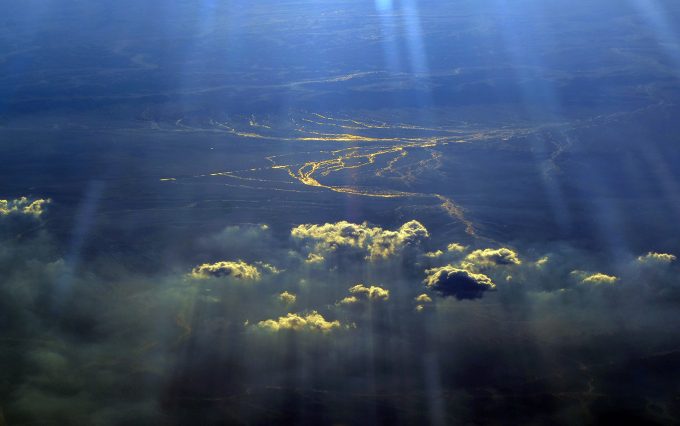
18th August 2022
Poetry
2 minutes read
Nile
translated by Owen Good

18th August 2022
2 minutes read
If you too have been Nile, a
dead-tired river in Egypt,
have woken on a six-thousand-
kilometer-long chute, sweltering
without a blanket on a morning almost over
between two sizzling banks,
what did you do, where did you go last night,
with whom, in what downpour, what kind of
spotted or striped or scaled
animals drank and dribbled
their blood into you, how
did you get home and
how many times have you done this –
then you know without a doubt
you are Egypt’s Nile, you
are the Nile in Egypt, and
no more tributaries for you,
don’t dream of rain,
the drying sun is sorry,
the drying wind is sorry,
the drying date is sorry,
only the desert remarks with
surprise, every morning,
Nile, Nile, you’re still alive?,
but proceeds with the day’s
business, and is soon simmering,
so, when you see beyond doubt
you’re Nile again,
water where water shouldn’t be,
a just-my-luck river, a so-it-goes river,
a that’ll-do river, a no-helping-it-now river,
then try to imagine that
you’re Nile in Egypt for one last day,
just think about it, Nile,
what you are,
the mass of things you are,
a hermit-withdrawn-to-the-wilderness river,
a strong, tenacious, ascetic river,
a steady and patient river,
a good parent,
still rearing and feeding
decent, hard-working women and men who
adore you, respect you, honor you,
rest assured, Nile,
you’ve done your bit,
and be glad a while,
because from now on
you’ll be Nile:
in it till the brine
ever non- perspiring
always repeatedly unexpected
surprise one-off accidental
wonder







